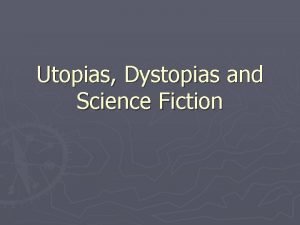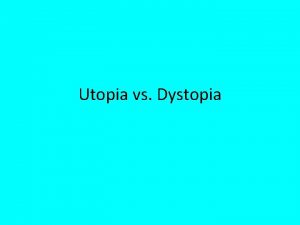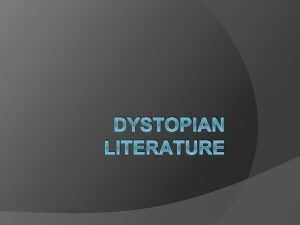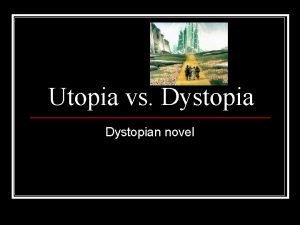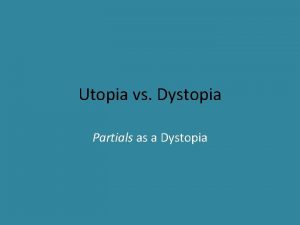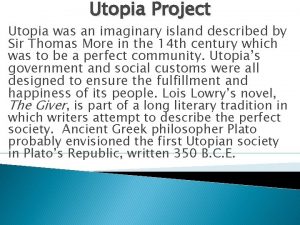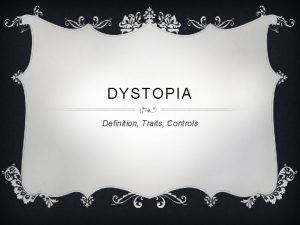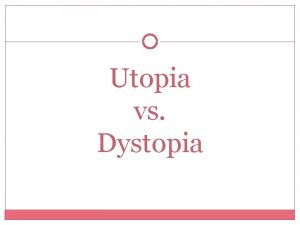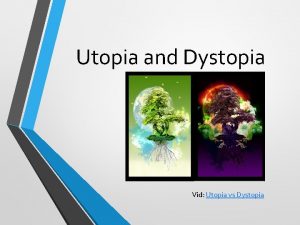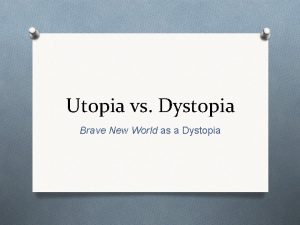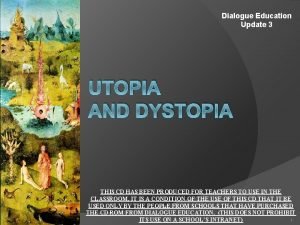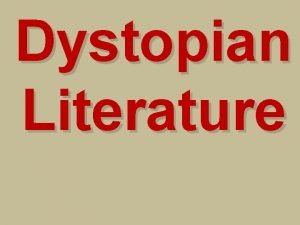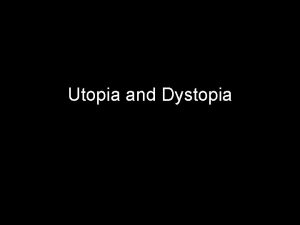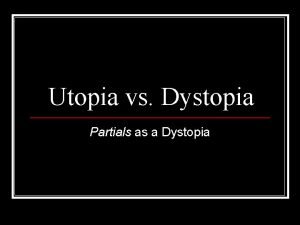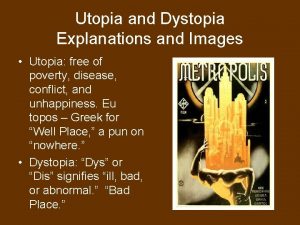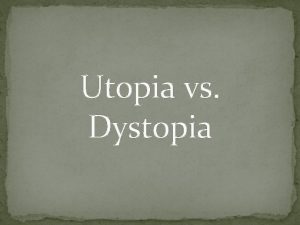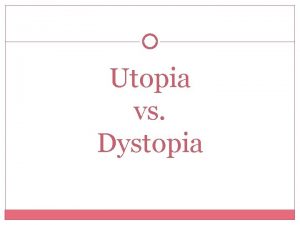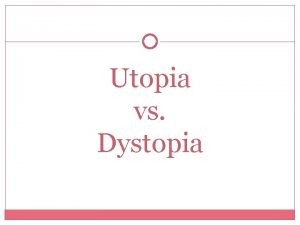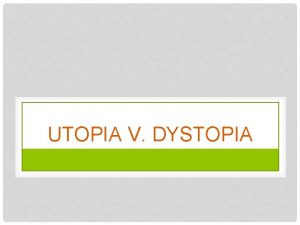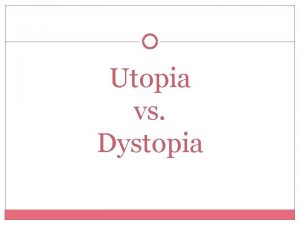Utopia and Dystopia Utopia Two Greek words oi













- Slides: 13

Utopia and Dystopia

Utopia • Two Greek words: “oi” (not) and “topos” (place) = “nowhere” • The word was created by Thomas More in 1516 when he wrote a book by that title

Utopian concepts • A beautiful society with a general pacifistic attitude • Poverty and misery are removed • Very few laws are necessary • Money is not necessary • People do only work that they enjoy and which benefits the common good

Related Ideas: Religion • The Judeo-Christian concept of the Garden of Eden and Heaven • The Buddhist concept of Nirvana

Related Ideas: Science • Advanced science and technology will abolish suffering and death

Dystopia • The antonym of utopia • An imaginary place where people lead dehumanised and often fearful lives

Dytstopian Concepts • • Totalitarian dictatorship Glorification and justification of violence Technology replaces humanity Negative social trends are taken to nightmarish extremes

Characteristics of Dystopian Literature • Fictional and futuristic • Dystopias serve as warnings to comtemporary man • Comment on our own current society

Dystopia in the Making What if. . . • • • No one had to go to school? You could have an i. Pod in your brain? Your computer could read your thoughts? No one had to pay taxes? Everyone had plastic surgery? Babies were scientifically created?

• Utopian and dystopian societies are often present in science fiction literature. • A utopia refers to a perfect society that does not exist or can never exist • Star Trek is an example of a utopian society because humankind has overcome sickness, racism, poverty, and warfare

• A dystopia is the opposite of a utopia and is usually characterized by a totalitarian society. • What does totalitarian mean? • In short, it refers to a society in which nearly every aspect of public and private behavior is regulated by the state. • Characteristics of a dystopian society: • A poor standard of living among the lower and middle classes • A protagonist that questions the society • Set in the future but resembles contemporary society

‘Never Let Me Go’ published in 2006’ • What type of society is it attempting to create?

• • Character Development Examples of how society is a utopia or dystopia Foreshadowing Important Plot Events Symbolism Important Theme Development Quotable Quotes
 Eutopia vs utopia vs dystopia
Eutopia vs utopia vs dystopia Utopia literary definition
Utopia literary definition Utopia vs dystopia
Utopia vs dystopia Utopia and dystopia venn diagram
Utopia and dystopia venn diagram Dystopian definition literature
Dystopian definition literature Utopia vs dystopia
Utopia vs dystopia Utopia vs dystopia
Utopia vs dystopia Deasybib
Deasybib Definition dystopi
Definition dystopi Political utopia
Political utopia Utopia vs dystopia definition
Utopia vs dystopia definition Is brave new world a dystopia or utopia
Is brave new world a dystopia or utopia Utopian vs dystopian
Utopian vs dystopian Utopia vs dystopia powerpoint
Utopia vs dystopia powerpoint
